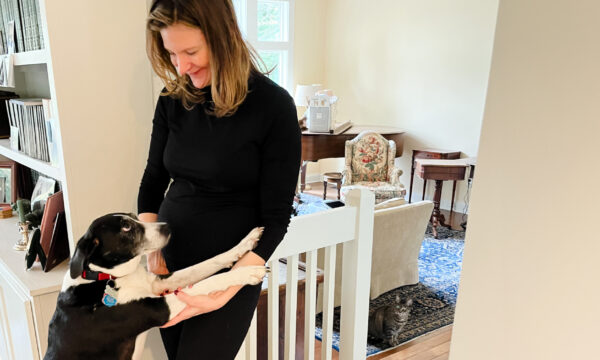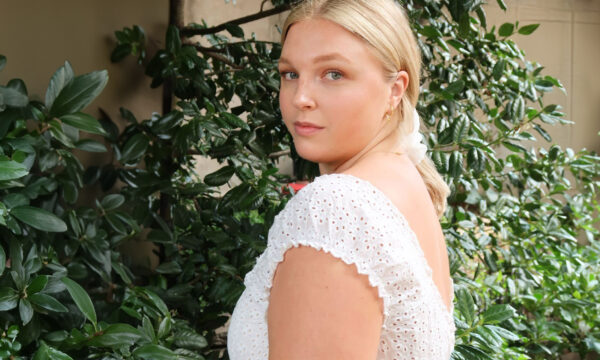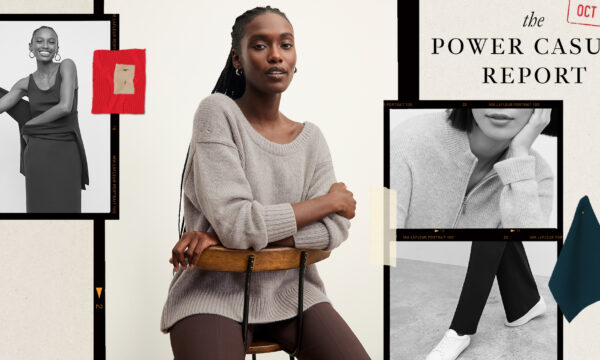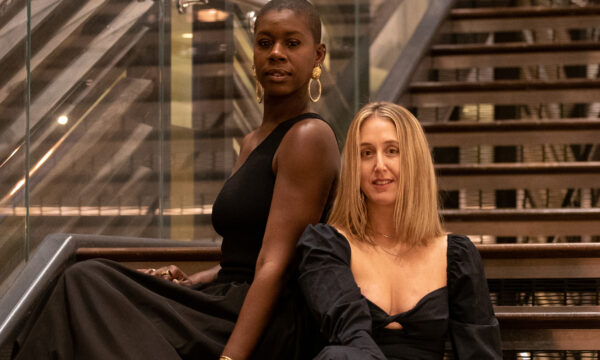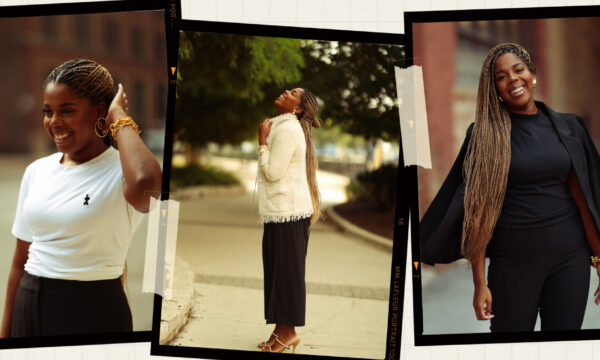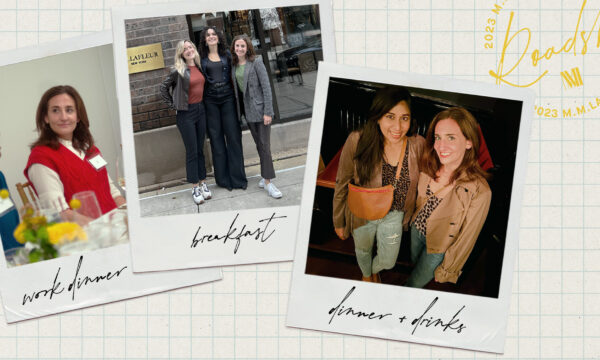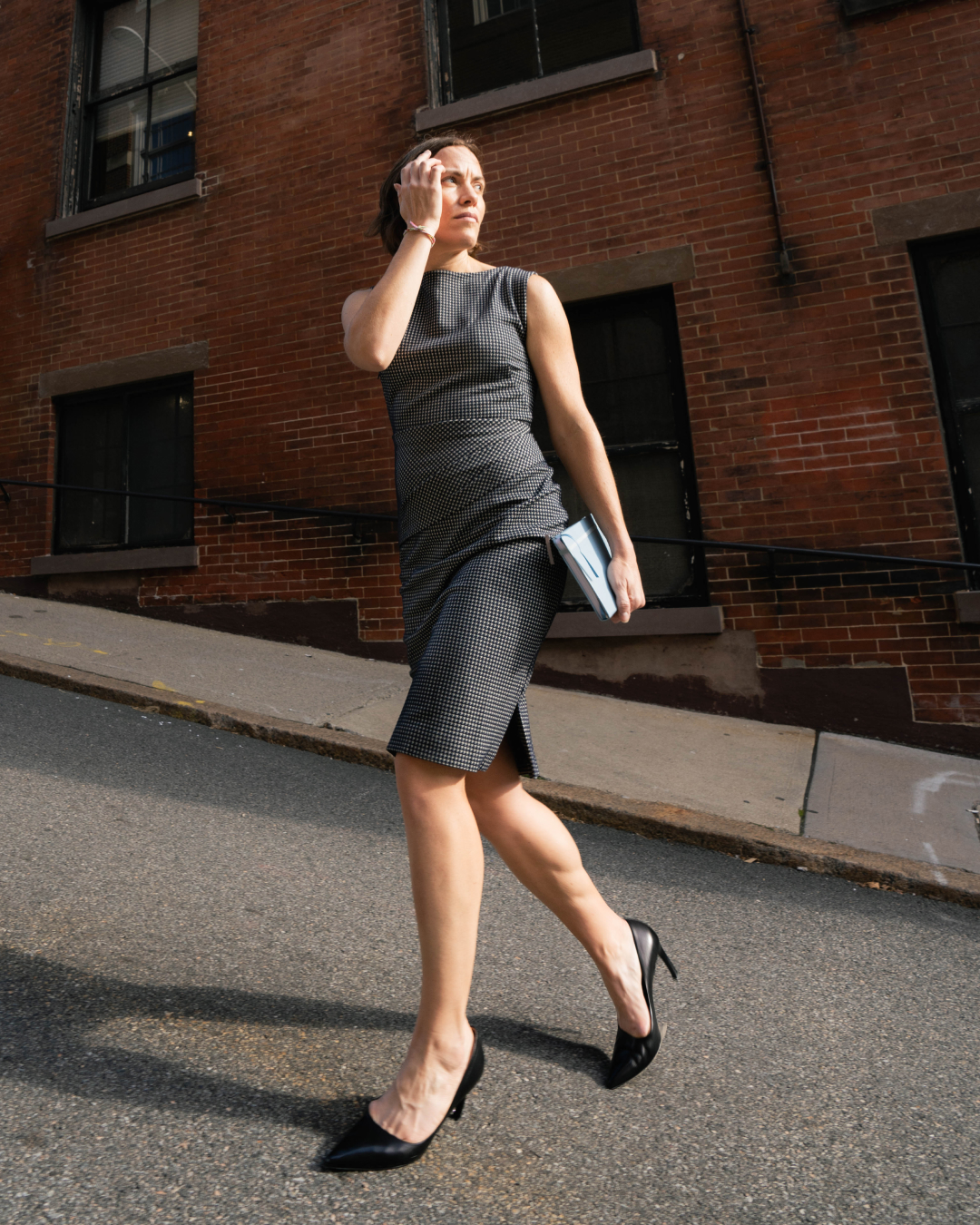
Shop This Look
How Author and Economist Emily Oster Uses Clothing to Project Authority
The best-selling author and economist chats with Sarah LaFleur about her career, her approach to getting dressed, and more.
Today, Emily Oster is a tenured professor at Brown University, a best-selling author, and a household name among many parents. But a decade ago, after she released her first book, Expecting Better, she thought she’d made the biggest mistake of her career. “The place where I was working at the time had told me that they would bring me up early for tenure, and then after the book came out, they turned me down for tenure,” she explains.
According to Emily, most economists didn’t take pregnancy, women’s health, and parenthood seriously as areas of academic study. “When I tell people I’m an economist, but I also write about pregnancy, they’re confused,” she says, “but I think it makes a tremendous amount of sense.” Despite the skeptics, her enormous success as an author has proven that there is a need for data-backed answers to questions about pregnancy and parenthood.
Below, Emily chats with Sarah LaFleur, our founder and CEO, about how she uses clothing to project authority, what inspired her to write Expecting Better, how she defines success, and so much more.
Want more M Dash?
Sign up for our weekly newsletter.
Thank you!
Her Closet
SARAH LAFLEUR: We’re so flattered that you wear so much M.M. in your daily life. Why do the clothes work for you?
EMILY OSTER: I don’t like to spend a lot of time getting ready, and I don’t like to spend a lot of time thinking about what I am going to wear. The clothes that you make fit me, they look nice, and they’re easy to pair together. Also, I just like them. They make me happy. It’s not more complicated than that.
What drew you to the pieces you selected for your capsule?
For my job, I do some things that are more formal and some things that are less formal, so I need pieces that can be dressed up or down. And also, I’m not into being uncomfortable. Something like a stretchy pair of jeans that looks professional is very appealing to me.
Another thing about these clothes that’s very important for me is that it’s not complicated to remember which things go together. Sometimes, with the clothing I own, I can’t put things together. With M.M., everything basically fits, so when you’ve forgotten to do the laundry, it’s okay, because you have other things that go with whichever piece you wanted to wear.


Looking at your capsule, there’s a lot of variety in formality. What are you wearing when you’re in front of your students?
It’s a combination. Early in the semester, I like to step it up a little bit, but then later, once they like me, I can get away with jeans. One thing about teaching is that once you get the students on your side, once they like you and they’re invested, you can get away with an enormous amount. But at the beginning of the semester, it’s very important to set a tone—a combination of authority and likeability. I’m not an especially formal person, but I try to ramp up the authority a little bit at the beginning. And then as we all become friends, I can move into a less formal mode of engagement and dress.
That is so insightful. Have you always used clothes as a tool in the way you project authority?
The first time I recognized this actually wasn’t in the context of teaching. It was in the context of thinking about dressing before versus after tenure. There was this particular purple dress [our Shirley dress], which I loved so much and wore until it went to pieces. And to me, that felt like a post-tenure dress. I would show up wearing it at seminars, and wearing something so feminine felt like a powerful way to really project gender. In my pre-tenure phase, I would’ve stayed more in the black pants realm. As I’ve aged, I’ve realized that you can buy a little bit of being able to find who you are. And that has been, for me, some of the gift of aging in this space.


Her Career
My first encounter with your work was when I was thinking of getting pregnant. I was absolutely hooked by Expecting Better. How did you first become interested in the crossover between economics and pregnancy?
My PhD is in economics, and my academic research is about health and data and statistical methods. I’ve always been interested in the women’s health space; in graduate school, I wrote a paper about menstrual cups. Women’s health is my academic focus within economics.
When I got pregnant in 2010, I started doing a lot of research about my pregnancy, which was a little different from my previous academic research. It wasn’t primary research, but I was very much using the data skills I have as an economist to serve my own pregnancy. That was my window into writing about that for a broader audience. In my mind, it all really connects. When I tell people I’m an economist, but I also write about pregnancy, they’re confused, but I think it makes a tremendous amount of sense.
When you first started talking about this, what was the response you got in academia?
The sort of “big reveal” was when the first book came out. I had done some writing for popular audiences about ideas from economics and how they could be applied to your life, but Expecting Better, which is really a book about pregnancy for an audience of pregnant women, was a real stake in the ground.
At the time, I was an assistant professor. I didn’t have tenure. People were surprised, and they weren’t all very enthusiastic. Inside academia, you have one job, and that job is to publish papers in journals. Doing something different—it’s just not done. Part of the response was like, “Not only have you written a book, which is not part of your academic portfolio, but it’s also a book about a topic that is not really of interest to most economists.” Many people thought it was really crazy and were not big fans.
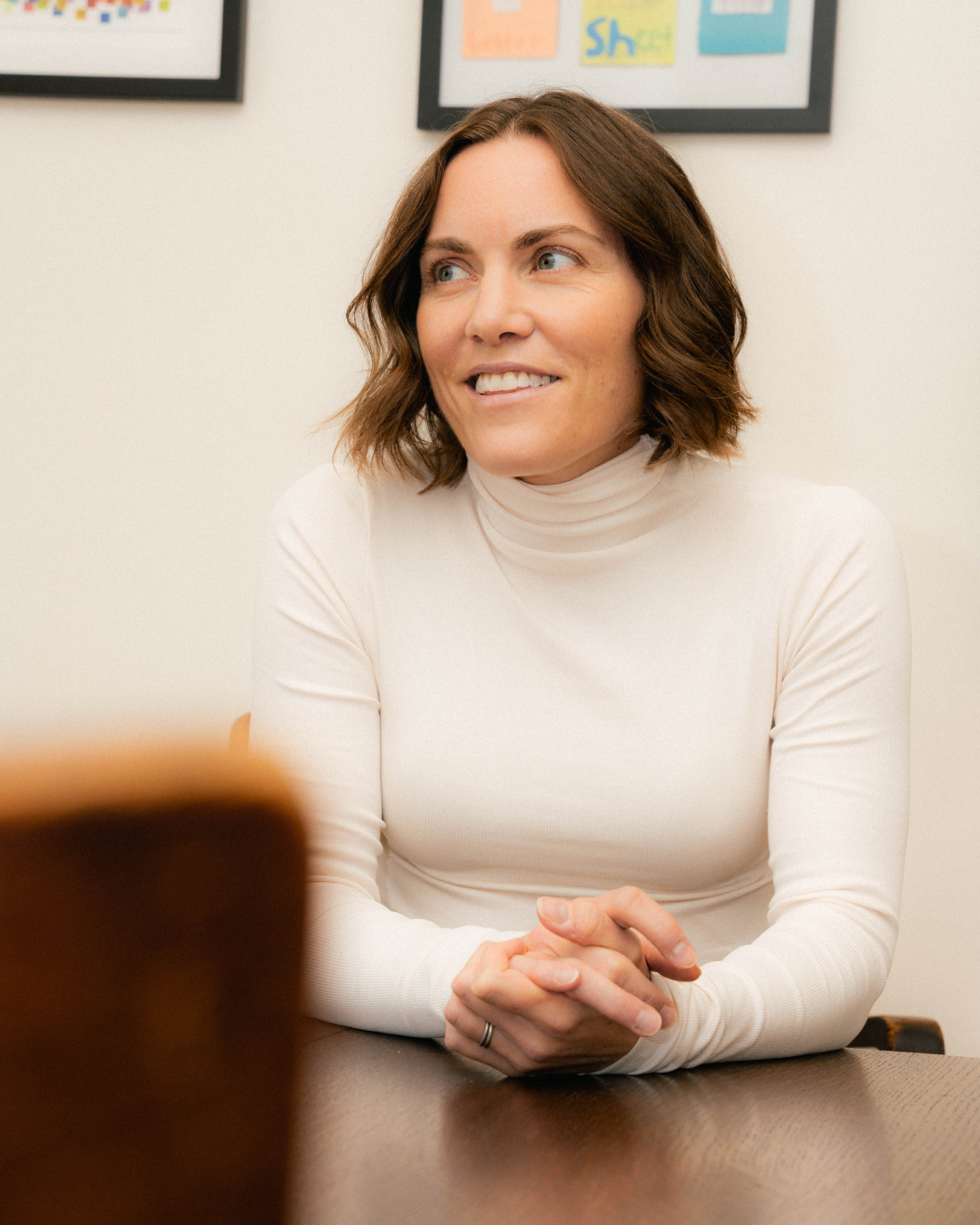

Her Brain
It’s been shown that women, on average, spend two more weeks per year getting ready in the morning versus men. Does this ring true to you? And as an economist, what would you say to that?
I definitely think that is representative of the population—it’s like many things I would put in the “pink tax” category. We sell the same product to men and women for different amounts; dry-cleaning your shirts is twice as expensive as dry-cleaning his shirts, even though it’s the same activity. We expect something out of women, and some of that is okay, but that extra time getting ready comes at the expense of something else.
There’s a study that came out in 2016 suggesting that women who wear makeup have higher earning potential than those who don’t. It’s one of those things where you think, “Maybe it’s true, but I hate that it’s true.” What do you make of that?
Having not read this study, I will tell you, I don’t think it’s true—or at least, I can see a lot of potential biases. I mean, the kinds of jobs in which people are typically wearing makeup are quite different from the kinds of jobs in which women would not be wearing makeup. My guess is that really it’s just reflecting differences in jobs and not differences in makeup.
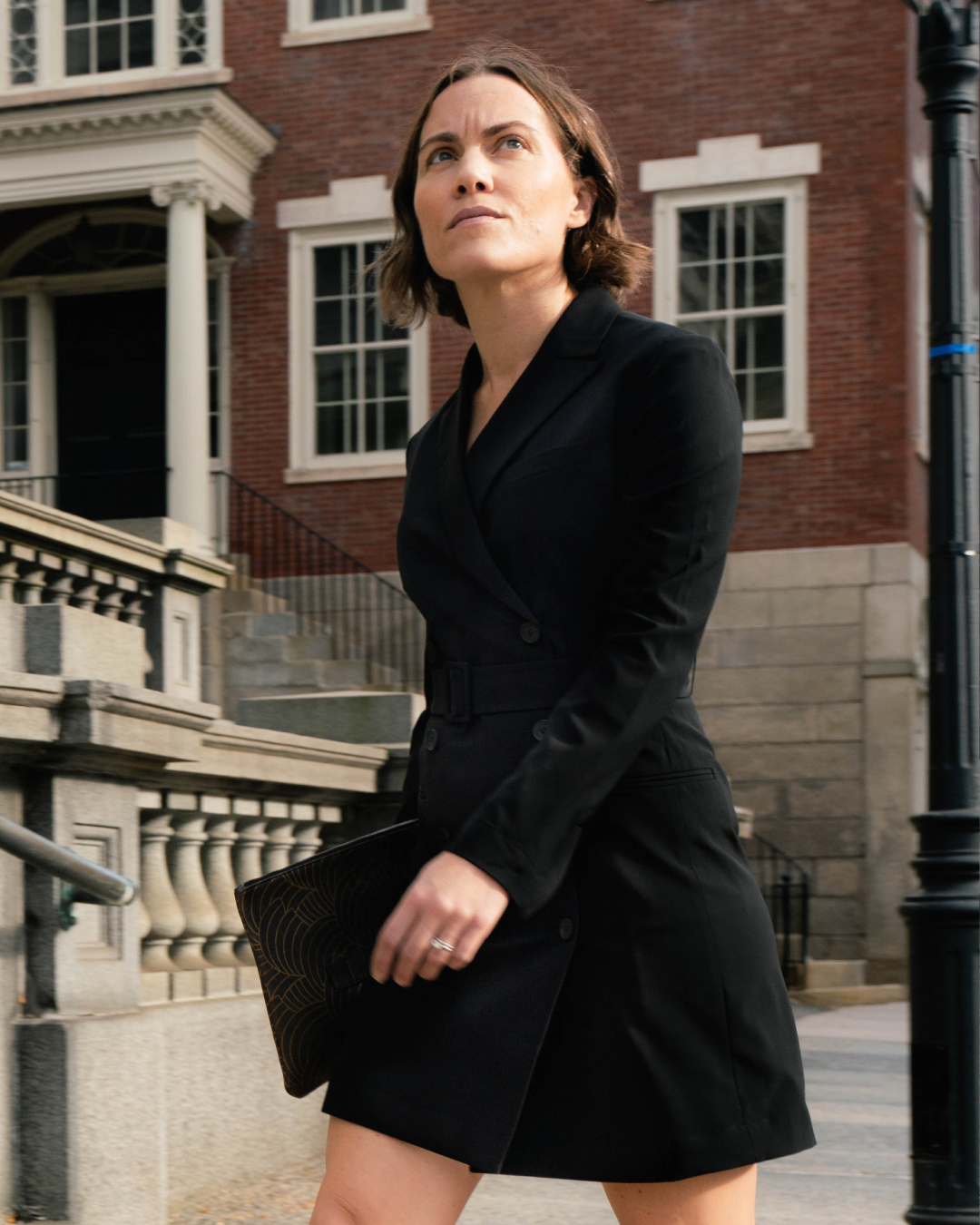
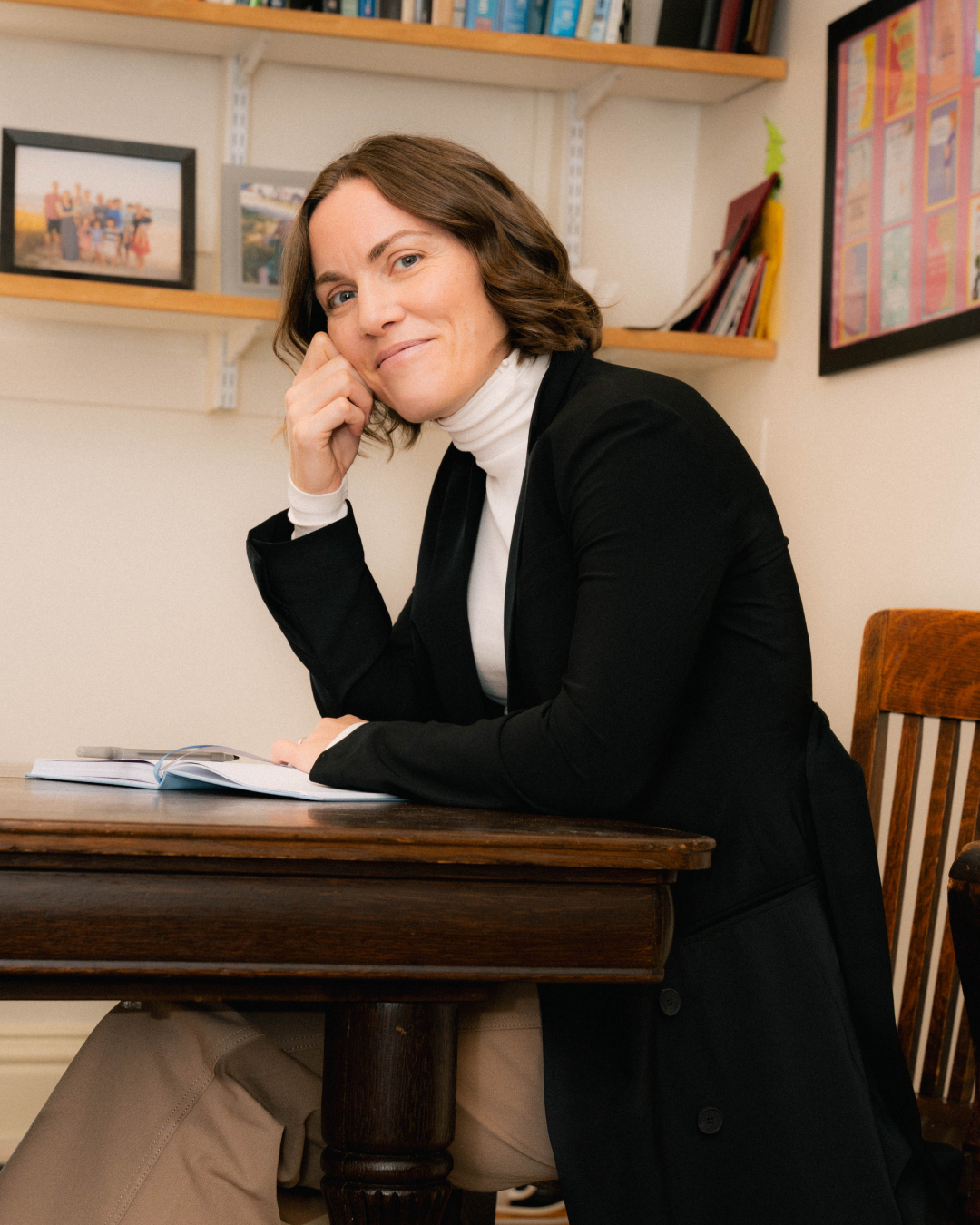
I founded M.M.LaFleur on the belief that the world is a better place when women succeed. What does success look like to you?
The way I would frame success is the ability to do the things that I think are delivering my highest value in the world. I now spend so much of my time on this parenting writing and, more generally, on writing for a lay audience about data and evidence. And the reason that feels like a success to me is that I think it’s the thing that I’m comparatively the best at, and it’s the thing that can influence the largest number of people. It took a long time for me to recognize that and to realize that I’m a good economist, but I’m better at this thing. Being successful is investing in the thing that tries to bring the most value to people.
There’s also a broader thing here, which is having every day be something that I want to do. I get to see my kids every day, and I also get to do a job that I like, where most of the activities I engage in are things that I basically enjoy doing. When I wake up in the morning, and I look at what I have to do in my day and what is going to happen, most of the time, I’m like, “I can’t wait.” And that’s such an incredible privilege.
If the you from 10 years ago could see where you are today, what would she say?
That’s when Expecting Better came out, and if I think back literally to 10 years ago, I was in the middle of getting fired. I was in the middle of being like, “This is the biggest mistake I have ever made. I’m going to have no job, and I have this two-year-old. I can’t even believe how badly I messed this up.”
Looking back now, I realize that actually, it wasn’t the biggest mistake—it was the best decision I ever made. I would never have believed that—not in a billion years.





